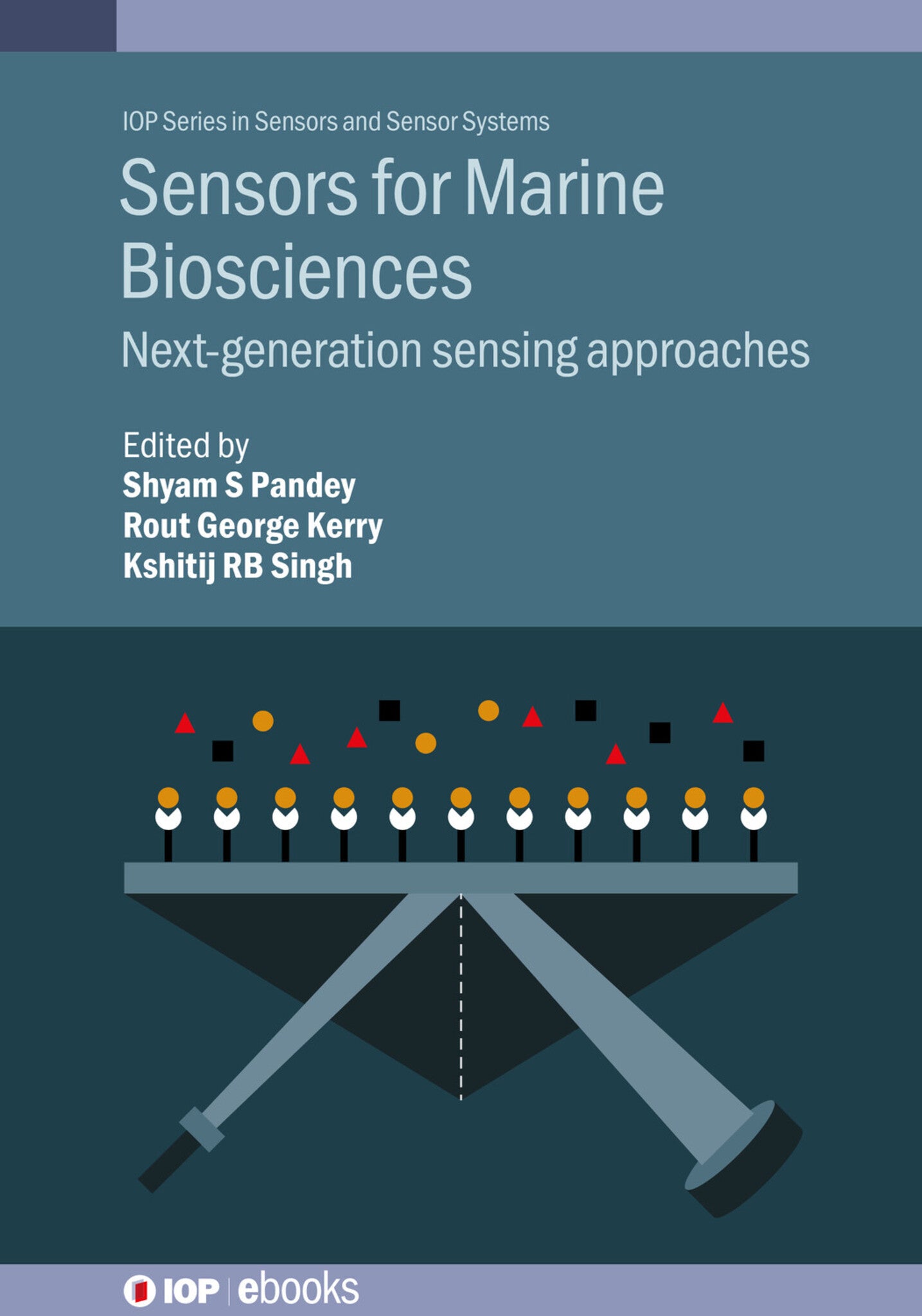We're sorry. An error has occurred
Please cancel or retry.
Sensors for Marine Biosciences

Some error occured while loading the Quick View. Please close the Quick View and try reloading the page.
Couldn't load pickup availability
- Format:
-
18 March 2025

The book, 'Sensors for Marine Biosciences: next-generation sensing approaches,' explores the critical role of sensors in marine biosciences by highlighting their application in monitoring pollution, detecting marine pathogens, and improving environmental protection. It covers advancements in biosensor technologies, including microbial, optical, electrochemical, and artificial intelligence-based sensors, offering comprehensive insights into real-time marine monitoring. The book will be reference material for scientists and researchers as well as students working in the fields of sensors, environmental monitoring, marine ecosystem, bioremediation technology and marine biology. It serves as a one-time resource for recent advances in the field of application of sensors in marine bioscience and various sensors-based applications.
Key Features:
- Includes diverse range of sensor types and functionality
- Features integration of emerging computer science tools such as AI, ML and IoT
- Includes remote and satellite sensing technologies
- Includes integration of bioinformatic tools and evolving gene editing techniques in sensor development
- Reviews sensor packaging

TECHNOLOGY & ENGINEERING / Sensors, Instruments and instrumentation, SCIENCE / Chemistry / Environmental, TECHNOLOGY & ENGINEERING / Environmental / Pollution Control, Biosensors, Environmental monitoring

Preface
Acknowledgements
Editor biographies
List of contributors
1 Introduction to sensor in marine bioscience
2 Sensors for monitoring global deposition of pollutants in aquatic ecosystems
3 Sensors for detection of marine organic and inorganic pollutants
4 Polymeric matrix-based biosensors for the detection of pollutants in the marine ecosystem
5 Remote sensing and satellite biological sensors for sustainability of the marine ecosystem
6 Artificial intelligence-, machine learning- and Internet of Things-based sensors for detection of marine pollutants
7 Biosensor-based detection of major aquatic pathogens in the marine ecosystem
8 Advancement of sensors in preservation and packaging of marine products
9 Nucleic acid-based biosensor for detection of infectious pathogens in marine products
10 Proteomics and genomics-based innovation in biosensors for marine biology
11 Commercial aspect of sensors in marine biosciences and its future prospects



